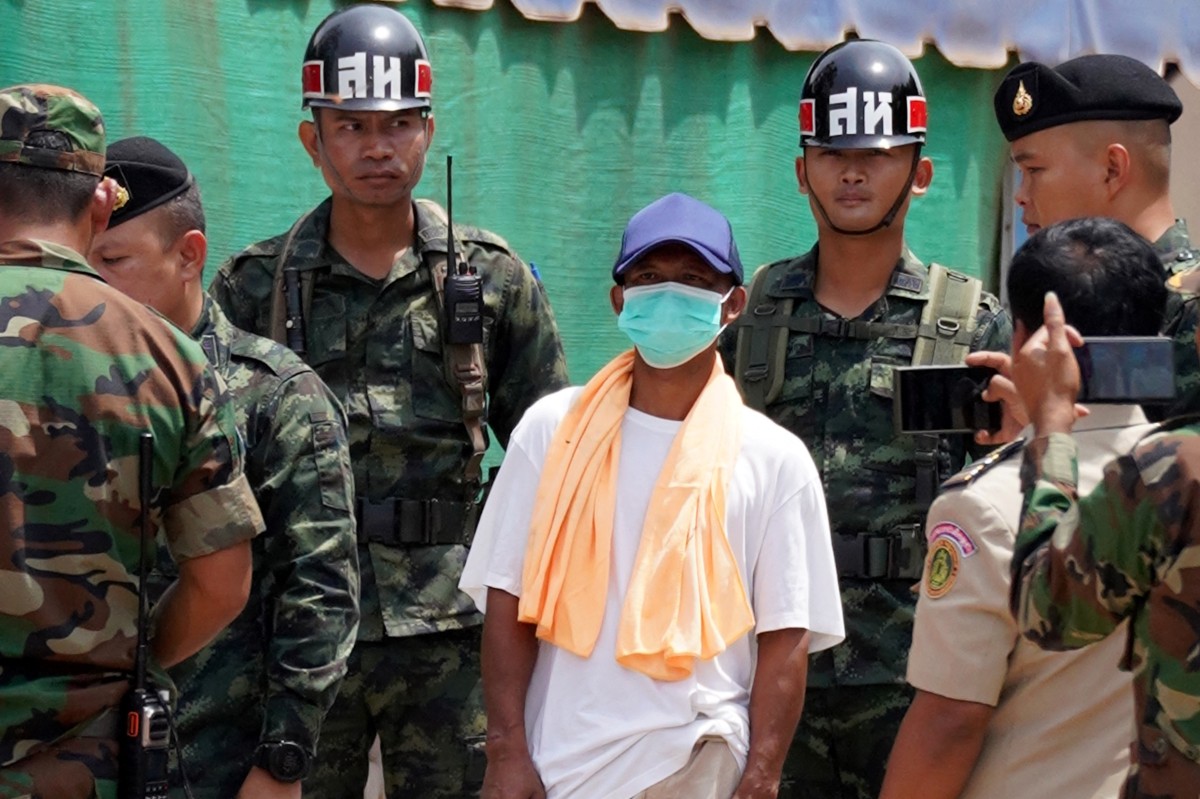Thai-Cambodian Crisis Deepens: Border Disputes, Assassination Rumors, and Legal Showdowns

Ongoing tensions between Thailand and Cambodia have been marked by a series of significant diplomatic disputes, military incidents, and accusations of misinformation. Thailand's Ministry of Foreign Affairs vehemently rejected recent claims circulating on social media, initially cited by Cambodia’s Minister of Information, that Thailand was planning the assassination of Cambodian leaders Hun Sen and Hun Manet. Nikorndej Balankura, Director-General of the Department of Information, unequivocally denied these allegations, branding them as entirely unfounded and defaming, particularly at a time when both nations were engaged in General Border Committee (GBC) discussions aimed at peaceful resolution.
A critical point of contention revolves around the detention of 18 Cambodian prisoners of war (POWs) by Thailand. Royal Thai Army spokesman Maj Gen Winthai Suwaree clarified that Thailand’s actions are lawful under international practice and humanitarian principles, specifically adhering to the Geneva Conventions. He stated that the POWs would only be repatriated once a concrete and fully effective ceasefire and cessation of hostilities has been achieved, ensuring they do not return to combat. Allied countries and international organizations, including a four-member delegation from the International Committee of the Red Cross (ICRC), have been allowed to visit the detainees, reaffirming Thailand's compliance with international law.
The border conflict has also highlighted severe violations of international treaties, most notably the Ottawa Convention on landmines. This issue gained prominence after an incident occurred just two days following a GBC meeting in Kuala Lumpur, where Cambodia rejected Thailand’s proposal for joint landmine clearance. Thailand has taken diplomatic action, with its ambassadors to the UN in Geneva and New York protesting Cambodia’s actions to the chair of the Ottawa Convention and the UN Secretary-General, requesting intervention for treaty violations.
To monitor alleged breaches of international law and ceasefire conditions, the Royal Thai Army (RTA) led an ASEAN Interim Observation Team (IOT) to the Thai-Cambodian border. This mission followed previous successful visits facilitated by the Thai government for international bodies, including ASEAN envoys and representatives from Ottawa Convention signatory countries. During these visits, envoys reportedly witnessed evidence of anti-personnel mines allegedly laid by Cambodian troops and interviewed affected residents. The ICRC also conducted visits, coordinated with the RTA and relevant ministries, to assess the humanitarian impact on civilians in Thai provinces bordering Cambodia, with findings to be submitted confidentially to both nations.
Disinformation has played a significant role in exacerbating tensions, with the Ministry of Digital Economy and Society (DES) reporting that eight out of the top ten fake news items in one week were related to the Thai-Cambodian border conflict. Beyond military and humanitarian concerns, Thailand has accused Cambodia of betraying humanitarian aid by establishing a community on Thai soil at Ban Nong Chan village in Sa Kaeo. Government spokesman Jirayu Houngsub stated that Cambodia exploited temporary shelters provided to refugees in 1977 to encroach on Thai territory, using its citizens as a
You may also like...
Lookman Under Spotlight as Atalanta Face Slavia Prague Challenge

Ademola Lookman is set to start for Atalanta against Slavia Prague in a decisive UEFA Champions League tie, under pressu...
CAF Player of the Year Race Heats Up: Osimhen, Nwabali, Lookman Vie for Top Honours

Nigerian stars Victor Osimhen, Stanley Nwabali, and Daniel Bameyi lead their nation's nominations for the 2025 CAF Award...
Wizarding World Casting Coup: 'Pirates' & 'Derry Girls' Stars Join New Harry Potter Adaptation!

Pottermore Publishing and Audible have announced new additions to the star-studded cast of Harry Potter: The Full-Cast A...
Hollywood's AI Revolution: Kevin O'Leary Advocates Robot Extras to Slash Movie Costs

Kevin O'Leary, investor and 'Shark Tank' host, argues that artificial intelligence can significantly cut film production...
Rock Titans Unite: System of a Down, Korn, Deftones to Dominate 2026 Sick New World Festivals

The Sick New World festival is making a grand return in 2026, featuring two one-day concerts in Las Vegas and Fort Worth...
Tragedy Strikes: Limp Bizkit Bassist Sam Rivers' Possible Cause of Death Unveiled

Limp Bizkit co-founder and bassist Sam Rivers has passed away at 48, with reports indicating an 'attended death' followi...
Royal Lodge Lock-In: The Shocking Reason Prince Andrew Can't Be Forced Out!

Prince Andrew faces mounting pressure to leave Royal Lodge after revelations surfaced about his 'peppercorn rent' arrang...
Victoria Beckham Breaks Silence: Unfiltered Truth on David's Scandalous Past Revealed!

Victoria Beckham has directly addressed the long-standing allegations of an affair between her husband David Beckham and...
